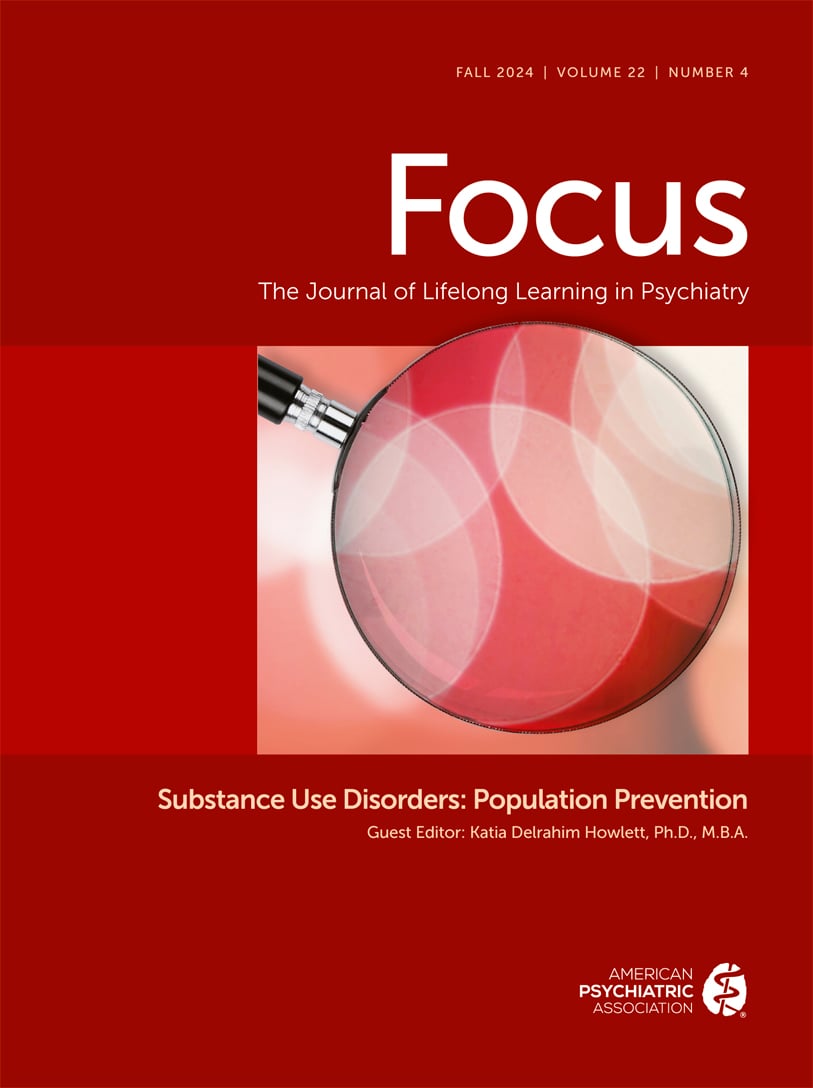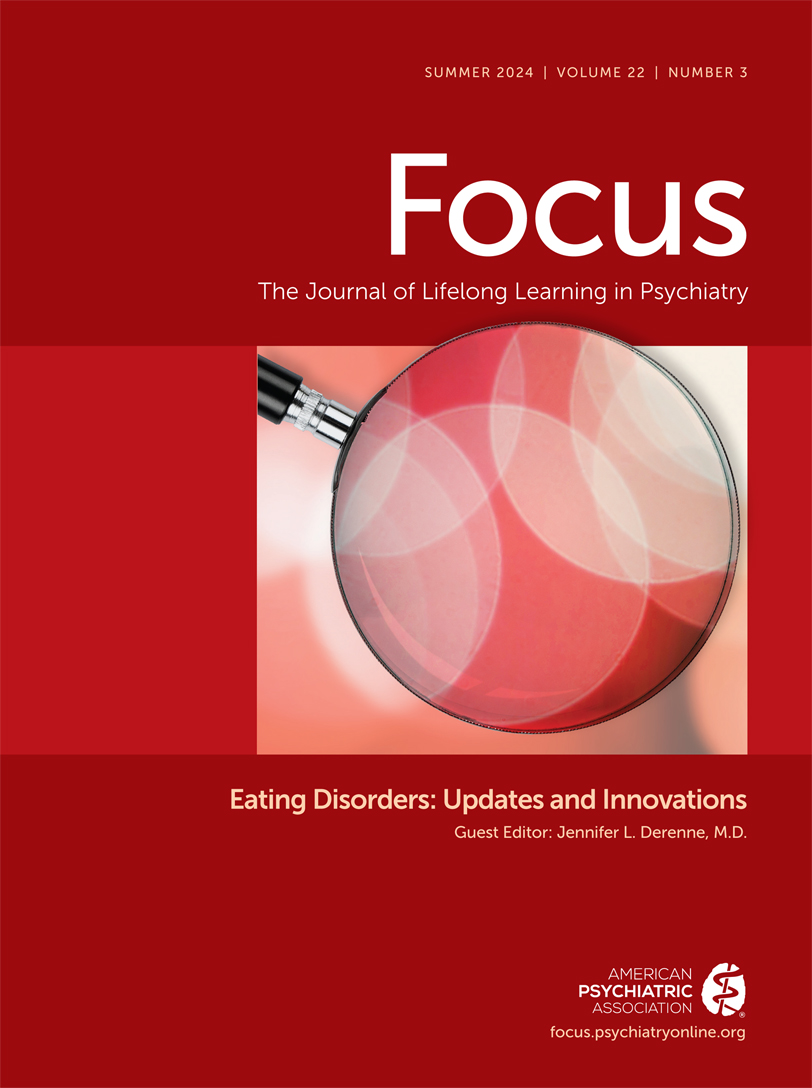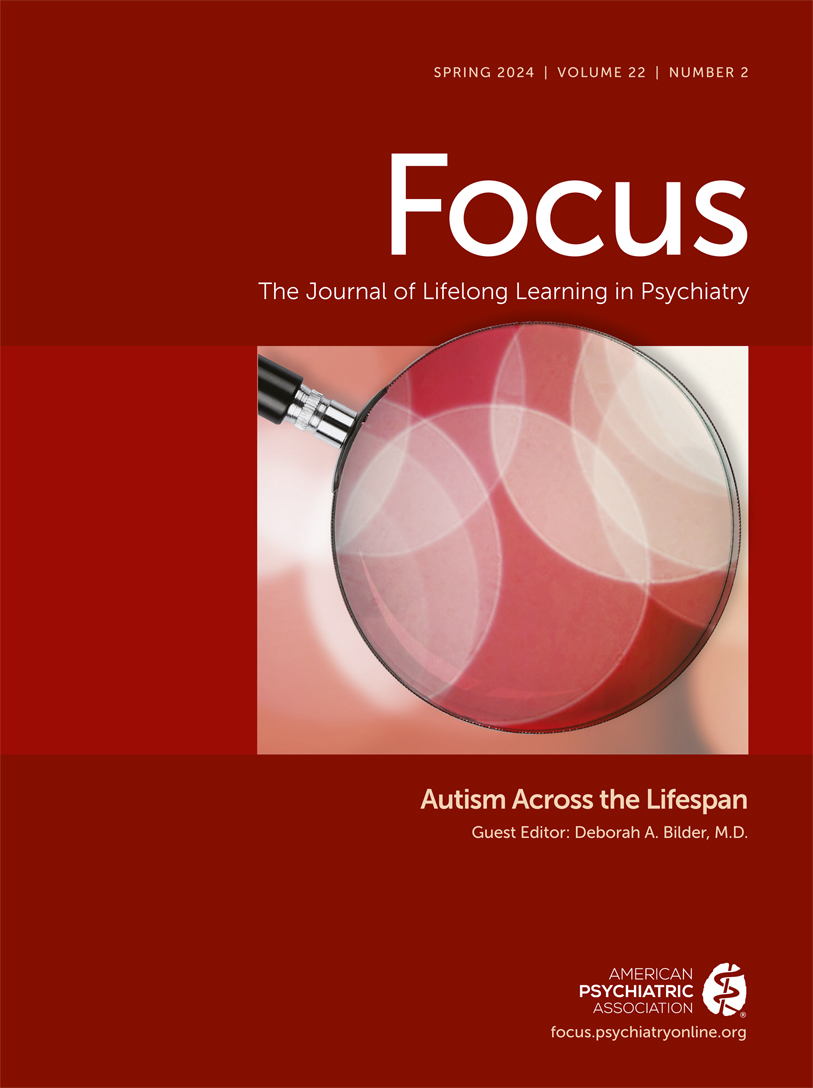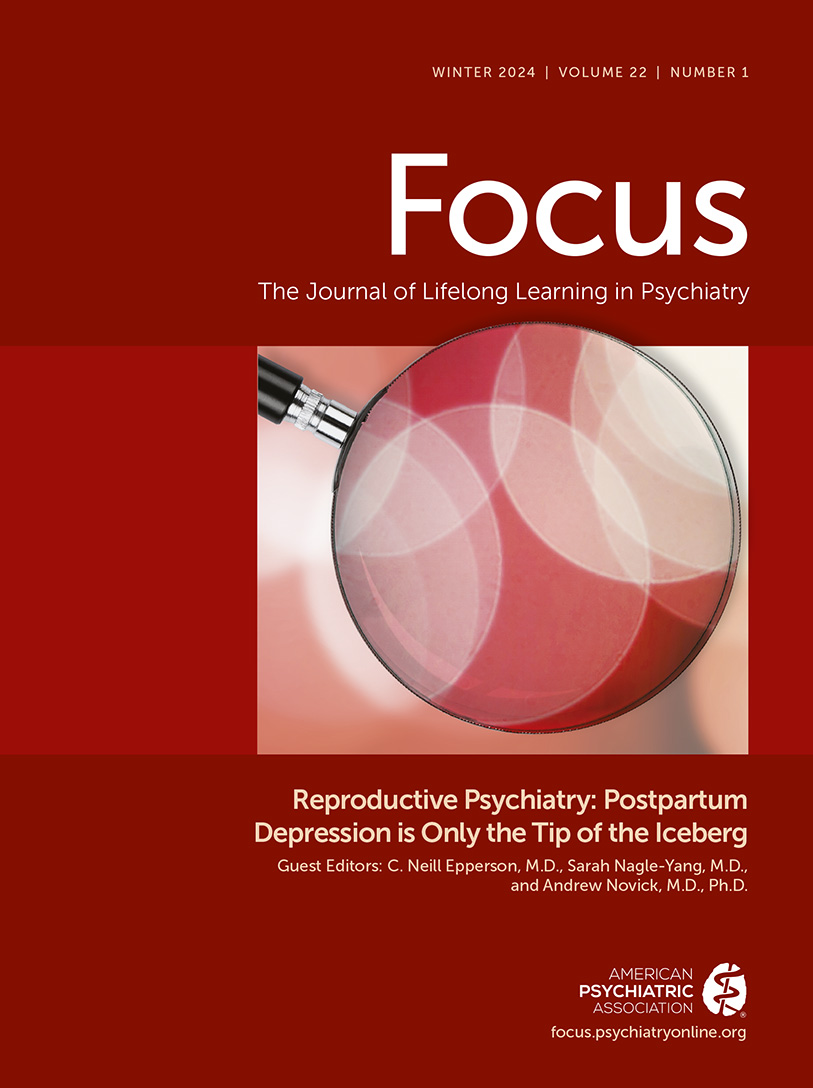Focus
- Volume 18
- Number 1
- January 2020
From the Guest Editor
Clinical Synthesis
Publication date: 01 January 2020
Pages2–7The increasing diversity of America requires a workforce that is able to serve the mental health needs of individuals from multiple backgrounds, with a culturally proficient, inclusive, and affirming approach. To accomplish this, clinicians must be ...
https://doi.org/10.1176/appi.focus.20190029Publication date: 01 January 2020
Pages8–15The prevalence and impact of trauma constitute a public health crisis that is complicated by the cultural heterogeneity of contemporary society and a higher rate of trauma among individuals from minoritized communities. A trauma-informed care approach can ...
https://doi.org/10.1176/appi.focus.20190027Publication date: 01 January 2020
Pages16–24This article investigates the gap in access to and quality of mental health care in the United States. This work first discusses how minority populations are most affected by the treatment gap. It summarizes recent literature on the topic for better ...
https://doi.org/10.1176/appi.focus.20190028Publication date: 01 January 2020
Pages25–30The social determinants of mental health are societal problems that disrupt optimal mental health, increase risk for and prevalence of mental illnesses, and worsen outcomes among individuals with mental illnesses. The various social determinants, two of ...
https://doi.org/10.1176/appi.focus.20190035Publication date: 01 January 2020
Pages31–39Affirmative practice is an approach to health and behavioral health care that validates and supports the identities stated or expressed by those served. Affirmative care requires the practitioner to actively honor and celebrate identity while at the same ...
https://doi.org/10.1176/appi.focus.20190030Publication date: 01 January 2020
Pages40–46This article reviews the clinical and research literature on the Cultural Formulation Interview (CFI) since its publication in DSM-5. The CFI is an interview protocol designed to be used by clinicians in any setting to gather essential data to produce a ...
https://doi.org/10.1176/appi.focus.20190037Ask the Expert
Communication Commentary
Ethics Commentary
Applied Armamentarium
Publication date: 01 January 2020
Pages55–57Vaping uses an electronic nicotine delivery system (ENDS) for inhaling vaporized and aerosolized ingredients. A significant subset of the psychiatric patient population will use ENDS and may have concurrent cigarette usage. In the clinical case ...
https://doi.org/10.1176/appi.focus.20190025Bibliography
Influential Publications
Publication date: 01 January 2020
Pages60–70Purpose of Review: We review recent community interventions to promote mental health and social equity. We define community interventions as those that involve multi-sector partnerships, emphasize community members as integral to the intervention, and/or ...
https://doi.org/10.1176/appi.focus.18102Publication date: 01 January 2020
Pages75–76In public health, recognition of the importance of the social determinants of health has led to significant shifts in practice and research. Psychiatry is making great progress in developing evidence-based, high-fidelity treatments that improve outcomes ...
https://doi.org/10.1176/appi.focus.18104Publication date: 01 January 2020
Pages77–82This article explains the origins, development, and applications of the DSM-5 Cultural Formulation Interview (CFI). This work first discusses the relevance of cultural factors to all aspects of mental health care, demonstrating the need for person-...
https://doi.org/10.1176/appi.focus.18103Past Issues
View Issues Archive
Vol. 22 | No. 4

Vol. 22 | No. 3

Vol. 22 | No. 2
